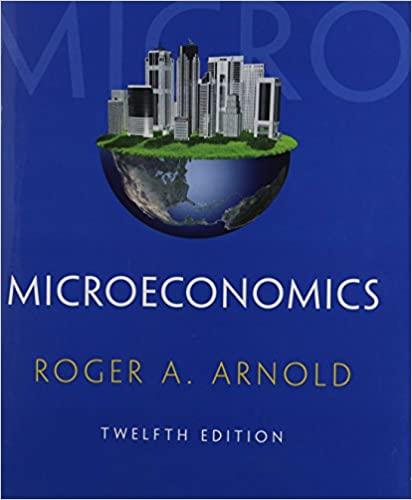Question
Consider the following 2-period model of saving for retirement. In Period 1, a consumer worker has one unit of time to allocate to labor (L)
Consider the following 2-period model of saving for retirement. In Period 1, a consumer
worker has one unit of time to allocate to labor (L) or leisure (1-L). The real wage rate is w, and
labor income (wL) is taxed at the rate t (0 Period 1 and saving (S) for retirement: (1) S = (1-t)wL - C1 Savings grow at the real interest rate r, and the worker gets a transfer (pension) T from the government in Period 2. Consumption in the second period (C2) is (2) C2 = (1+r)S +T The consumer-worker maximizes u(C1 ) + u(C2 ) + v(1-L) , 0 < <1 , subject to (1) and (2). The functions u(.) and v(.) are strictly increasing, continuously differentiable, and strictly concave. Assume throughout that leisure and consumption in the two periods are normal goods. Also assume the transfer T is sufficiently small to make saving S positive. a. Derive the optimality condition for the consumer's choice over C1 and L (i.e., the labor-leisure margin), and give a brief intuitive explanation of what this condition implies. b. Derive the optimality condition for the consumer's choice over C1 and C2 (i.e. the Euler equation), and give a brief intuitive explanation of what this condition implies. Briefly indicate how your results reflect (or don't reflect) a consumption smoothing motive. c. Briefly indicate what are the income and substitution effects of an increase in the tax rate t on C1 , C2 , S, and L. d. Briefly indicate what are the income and substitution effects of an increase in the transfer (pension benefit) T on C1 , C2 , S, and L.
Step by Step Solution
There are 3 Steps involved in it
Step: 1

Get Instant Access to Expert-Tailored Solutions
See step-by-step solutions with expert insights and AI powered tools for academic success
Step: 2

Step: 3

Ace Your Homework with AI
Get the answers you need in no time with our AI-driven, step-by-step assistance
Get Started


